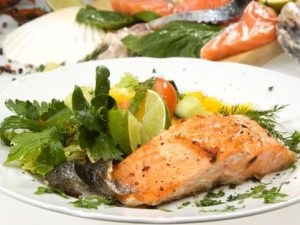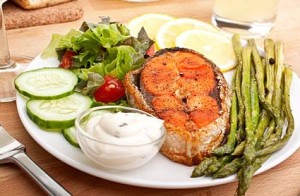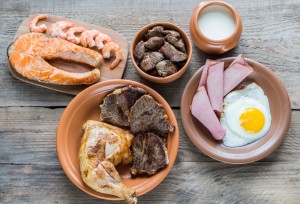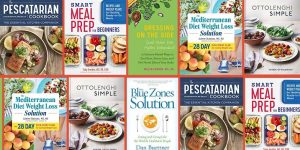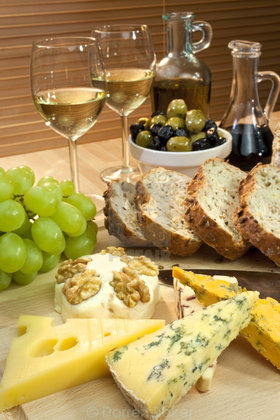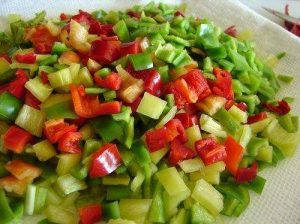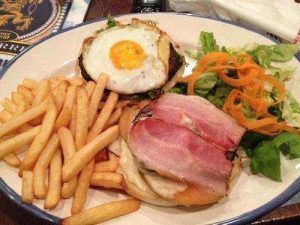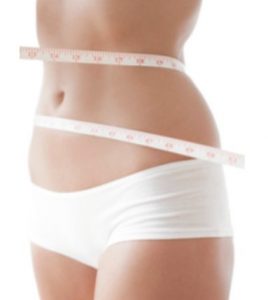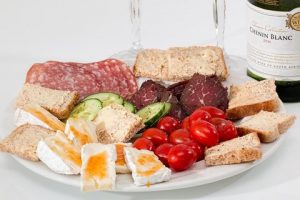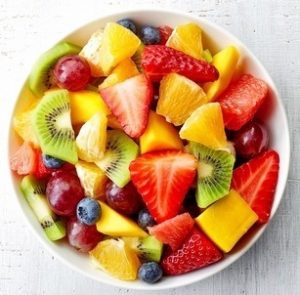Is a low carb diet a weight loss truth – or myth?
Recent research points to low carbohydrate diets being as effective as any other fat loss diet… as long as you can stick to it!
Over time, myths must die. And it’s time for some long-lived fat loss myths over a low carb diet to be shattered by emerging facts.
After decades of childish bickering over which approach to fat loss is better – low carb diets or low fat diets – the truth is finally emerging, thanks to some well-designed and carefully monitored studies.
And the results are startling!
Long-cherished beliefs are now being tossed out the window.
Folks like you and me who just want to burn that pesky belly fat and lose weight have a lot to cheer about. Because, you see, the evidence shows that different approaches work just as well to burn fat.
Yes, low carb diets help with weight loss. And yes, low fat diets are also effective.
No, picking one over the other will not leave you at a disadvantage.
And what matters most is that you’re able to stick with the diet you choose.
Now that you have the bird’s eye overview, let’s get into more detail and explore what makes a low carb diet as effective as a low fat diet.
You’ll learn why avid followers of either approach don’t need to switch or change, just as long as they get on steadily with whatever they’re doing.
Low Carb Diet : The Shifting Sands of Dietary Fashion
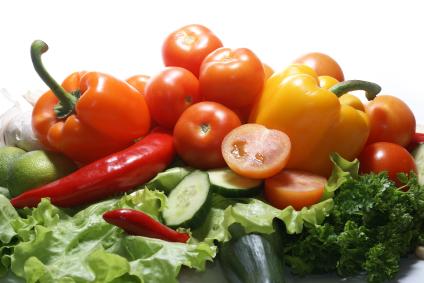
Since the 1960s, Americans have been exposed to conflicting statements about weight loss.
One that has stayed consistent over decades, though, is the advice that saturated fat is bad for your health.
The US Department of Agriculture first seeded this ‘home truth’ deep into our collective psyche. This was gradually reinforced by the Surgeon General’s endorsement.
But strangely, even as Americans believed in it, they grew more obese!
Now while several factors combined to create this ‘overweight epidemic‘, a large part was contributed by the ill-informed dietary advice rendered over 5 decades.
Even with little scientific research supporting the claim, it was only recently that the Scientific Report of the Dietary Guidelines Advisory Committee admitted that “blaming fat as the enemy was wrong“.
Low Carb Is The New Low Fat
Indeed, a low fat diet means you’ll have to make up for calories by eating more carbohydrates (and that raises your chances of becoming diabetic) … or consuming more protein (that increases your risk of getting gout).
Another consequence of a ‘low fat diet‘ is the growing use of processed food substitutes like margarine, spam and low-fat cookies which contain preservatives, trans fats and highly-processed carbs – all of them health hazards.
Enter The Low Carb Diet Movement
Low carb diets aren’t new.
Recommended as a cure for diabetes in the late 1700’s by John Rollo, it was popularized by William Banting in 1863 (and low carb diets are even now called Banting diets).
Essentially a low carb diet involves eating less carbohydrate and more protein and fat.
To follow a low carb diet, you’ll reduce your intake of sugar, fruits, starches and some vegetables.
You’ll also avoid rice, bread and pasta, while eggs, cheese, meat and fish can be eaten without restriction.
Here’s what happens when you follow a low carb diet
- your insulin levels fall
- significant fat loss occurs
- beneficial metabolic changes take place
- your heart disease risk drops
- you won’t crave food while on a low carb diet
- your appetite decreases, so you’ll eat fewer calories

How a Low Carb Diet Regulates Insulin
Insulin is a hormone that gets cells to take up excess glucose from the blood, and use this glucose for energy. If the cell doesn’t need more energy, then it stores glucose in the form of fat.
A low carb diet trial on 132 obese people was reported in the New England Journal of Medicine to have lowered insulin levels by 27% while at the same time increasing cell sensitivity to the available insulin.
This means glucose metabolism goes on as normal, without the pancreas being stressed to release more of the hormone. That, in turn, reduces the risk of diabetes. It ensures better glucose metabolism by your body on a low carb diet.
How a Low Carb Diet Helps Weight Loss
Whenever you first go on a diet to lose weight, two things happen.
- You lose water and
- Your body burns fat
At the beginning, water loss is more likely.
Insulin levels play a role in this, by altering the blood glucose levels. A low carb diet keeps glucose concentration stable, so that your body doesn’t retain water.
But that isn’t all that happens when you cut down on carbohydrate intake.
Longer term weight loss involves losing fat, an effect that also happens on a low carb diet.
Over 20 studies have confirmed that a low carb diet can help you lose belly fat and internal visceral fat more effectively than people on low fat diets.
A few years back, a paper in the ‘Annals of Internal Medicine’ from Tulane University reported on 148 volunteers who followed a low carb diet of less than 40 grams daily – and lost 7.7 pounds more than others who ate less fat.
A Low Carb Diet Has Metabolic Advantages, Too
For many dieters, the metabolic effects of a low carb diet make it sound very attractive.
Shaun Hadsall’s ’14 Day Rapid Fat Loss Plan’ is based on an eating plan that confers serious metabolic benefits to dieters – you can read a review of the program here – click.
Your body’s metabolic rate is a measure of how much energy your cells use up in a certain time frame.
If your body burns up more energy, it is easier to lose weight.
The greater your muscle mass, the more energy your body will burn as fuel. Higher protein intake associated with low carb diets causes greater energy consumption, which leads to a metabolic advantage over those on a low fat diet.
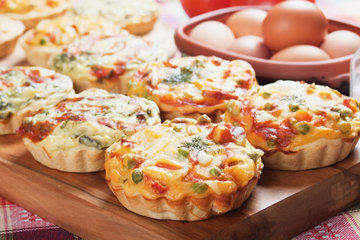
Heart Disease Risk is Less on a Low Carb Diet
Cardiovascular diseases are more likely in individuals with high levels of LDL cholesterol and triglycerides, while HDL (“good“) cholesterol is protective against heart disease.
Repeated nutritional research has shown that a low carb diet increases HDL levels and brings down triglyceride levels, thereby reducing heart attack and stroke risk.
Food Craving Is Less with Low Carb Diets
Anyone who has tried dieting is familiar with hunger pangs as the initial flush of excitement wears off, and your body begins to struggle against the effects of food deprivation.
Hunger is a natural response to low blood sugar levels. It signals your brain that it’s time to fuel up!
But this protective reflex is bad news for dieters.
In fact, for many of us, these food cravings are a disaster that forces us to give up on any diet before we can enjoy the benefits of it.
Diets based on high carbohydrate intake act in a self-defeating manner.
- You eat sugar or carbohydrates.
- Your blood glucose level rises.
- Insulin is released from the pancreas in order to deal with this glucose.
- Cells use up excess levels.
- But then the system overshoots, bringing down blood glucose to a point where it triggers the hunger response.
- You begin to crave carbohydrates again
- And the vicious cycle continues, over and over.
A low carb diet appeals to many because it reduces food craving.
Hunger pangs are a reflection of low blood glucose levels.
Since a low carb diet (with increased protein intake) results in fewer insulin spikes, your blood glucose level stays stable over a longer period… and you no longer feel hungry.
Then Are Low Carb Diets The Best Option?
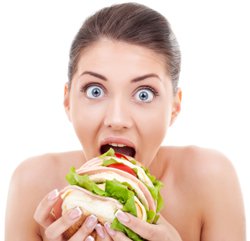
It might seem that way, considering how beneficial a low carb diet can be to lose weight and improve overall health.
And many nutritionists and dieticians have sworn by a low carb diet as the ideal path to sustainable weight loss.
Recent research has however thrown up an equally effective alternative – a low fat diet.
Low Fat Diets May Even Be Better Than Low Carb Diets
What set the cat among the pigeons is a new study reported in the journal Cell Metabolism from the U.S. National Institutes of Health.
The research closely monitored a group of subjects over four weeks. During this period, everything they carefully measured and controlled what dieters consumed.
In the first half of the study, they reduced calories by 30% through a low carb diet. Fat intake remained normal.
During the next 2 weeks, they reversed the pattern – with fats being restricted and carbohydrate intake increased.
Here’s the interesting part.
While the low carb diet brought about a loss of 245 grams (0.54 pounds) of fat, the low fat diet lowered weight by 463 grams (1.02 pounds) – that’s 80% higher than the low carb group.
“I wanted to see if carbohydrate restriction is effective for losing body fat because that concept has impacted the way many choose their diets,” says Kevin Hall.
Dr.Hall was the lead researcher on the paper. He cautions against the data being too widely applied because the study group was small (just 19 people), and believes ongoing larger trials will offer more information and guidance.
Meanwhile, here’s the big takeaway for dieters like you.
The Only Diet That Matters Is…
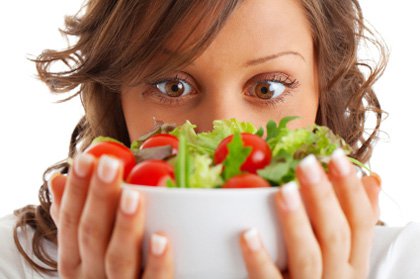
However you choose to look at the data, one thing stands out clearly as an important message for dieters.
In the words of Susan Jebb of Oxford University:
“The best diet for weight loss is the diet you can stick to.”
If you cut calories, whether by a low carb diet or a low fat diet, you’ll lose weight. To continue to lose weight, you’ve got to stick to your eating plan.
But that’s easier to say than do.
Most of us can stay with a diet for a week or two. But it takes longer to lose weight in a sustainable fashion.
And ‘real world‘ experience (where diets are not so strictly regulated or controlled) suggests that greater weight loss comes from low carb diets.
Still, people differ.
If a low fat diet is easier for you to stick to, then you should pick it.
Some dieters find it easier to cut calories in the form of lower fat intake. Others find it easier to give up on carbs. There are no metabolic disadvantages to one approach over the other.
The best diet to lower body fat is not just a matter of body chemistry.
As Sai Das and Susan Roberts from Tufts University say, “Some carbohydrates like healthy whole grains with low glycemic index are okay for anyone to eat.”
In the final analysis, it’s no use prescribing a diet that you can’t maintain over the long run.
The best fat loss diet… is the one that you can stick to.
Shaun Hadsall’s ’14 Day Rapid Fat Loss Plan’ is among the easiest diet plans to maintain, being based on macro-patterning and common sense logic. You can learn more about it in this detailed review – click.
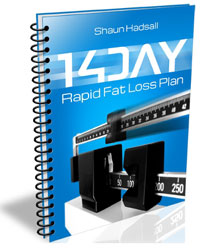
Tags:
- low carb diet plan
- low carb diet weight loss
- low carb food list
- low carb recipes
- low carb diet side effects
- low carb diet menu
- low carb diet recipes
- low carb foods

